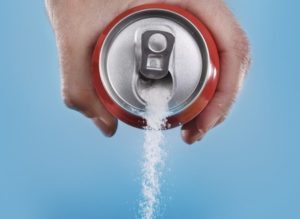

doi:10.1177/2633559x20968216įagherazzi G, Vilier A, Saes Sartorelli D, Lajous M, Balkau B, Clavel-Chapelon F. But a 2017 review found that people who regularly consume sweeteners (both stevia and artificial sweeteners) may have a higher risk of weight gain, obesity, type 2 diabetes and cardiovascular events. JUST THE FACTS: What you and your clients need to know about low/no-calorie sweeteners. A review of 30 studies showed that artificial sweeteners such as aspartame, sucralose and stevia are associated with weight gain, increased waist circumference, and higher incidence of obesity, hypertension, metabolic syndrome, type II diabetes and heart attacks (Can Med Assoc J, 189(28):E929-E939). The association between artificial sweeteners and obesity. Sugary drinks, artificially-sweetened beverages, and cardiovascular disease in the NutriNet-Santé Cohort. Consuming too much added sugar, even natural sweeteners, can lead to health problems, such as tooth decay, weight gain, poor nutrition and increased. Artificial sweeteners may be associated with long-term weight gain and increased risk of obesity, diabetes, high blood pressure and heart disease, according to a new study published in CMAJ. doi:10.1016/j.jand.2016.11.004Ĭhazelas E, Debras C, Srour B, Fezeu LK, Julia C, Hercberg S, Deschasaux M, Touvier M. Consumption of low-calorie sweeteners among children and adults in the United States. Sylvetsky AC, Jin Y, Clark EJ, Welsh JA, Rother KI, Talegawkar SA. A 2017 meta-analysis of research on artificial sweeteners, published in the Canadian Medical Association Journal, found no clear evidence of weight loss benefits for artificial sweeteners in randomized clinical trials, and reported that cohort studies associate artificial sweeteners with increases in weight and waist circumference, and.

Dietary Guidelines for Americans, 2020-2025. Consumption of sugar sweetened beverages, artificially sweetened beverages, and fruit juice and incidence of type 2 diabetes: systematic review, meta-analysis, and estimation of population attributable fraction. High-dose saccharin supplementation does not induce gut microbiota changes or glucose intolerance in healthy humans and mice. Long-term prospective clinical randomized studies are needed to evaluate precisely whether exposure to alternative sugars can have clinical implications on natural history and clinical outcomes, especially in children or during the gestational period through breast milk.Serrano J, Smith KR, Crouch AL, et al.

Epidemiological studies in healthy subjects have suggested that the consumption of artificial AS can promote CV complications, such as glucose intolerance and predisposition to the onset of T2D, whereas natural AS could reduce hyperglycemia, improve lipid metabolism and have antioxidant effects. The same amount of diet sodazero calories.

The average 12-ounce can of sugar-sweetened soda delivers about 150 calories, almost all of them from sugar. By offering the taste of sweetness without any calories, artificial sweeteners seem like they could be one answer to effective weight loss. Hyperglycemia and endoplasmic reticulum stress together produce ROS, contributing to the development and progression of cardiovascular complications during type 2 diabetes (T2D), thus causing oxidative changes and direct damage of lipids, proteins, and DNA. By Holly Strawbridge, Former Editor, Harvard Health. Indeed, endothelial dysfunction involving in the pathogenesis of micro- and macro-vascular diseases is mitochondrial dysfunction dependent. Also, theres little evidence from longer term studies to show that sweeteners cause weight gain. But research into sweeteners and appetite stimulation is inconsistent. may play a role in weight gain and obesity. Major pathogenic mechanisms of these substances include ROS and AGEs formation. Artificial sweeteners are low-calorie or calorie-free chemical substances used instead of sugar to sweeten foods and drinks. Preclinical and clinical studies, which analyze the safety of AS intake, are still limited. An interesting approach has been to replace sugar with alternative sweeteners (AS), due to their impact on public health. The rapid increase in obesity, metabolic syndrome, and cardiovascular diseases (CVDs) has been related to the rise in sugar-added foods and sweetened beverages consumption.


 0 kommentar(er)
0 kommentar(er)
